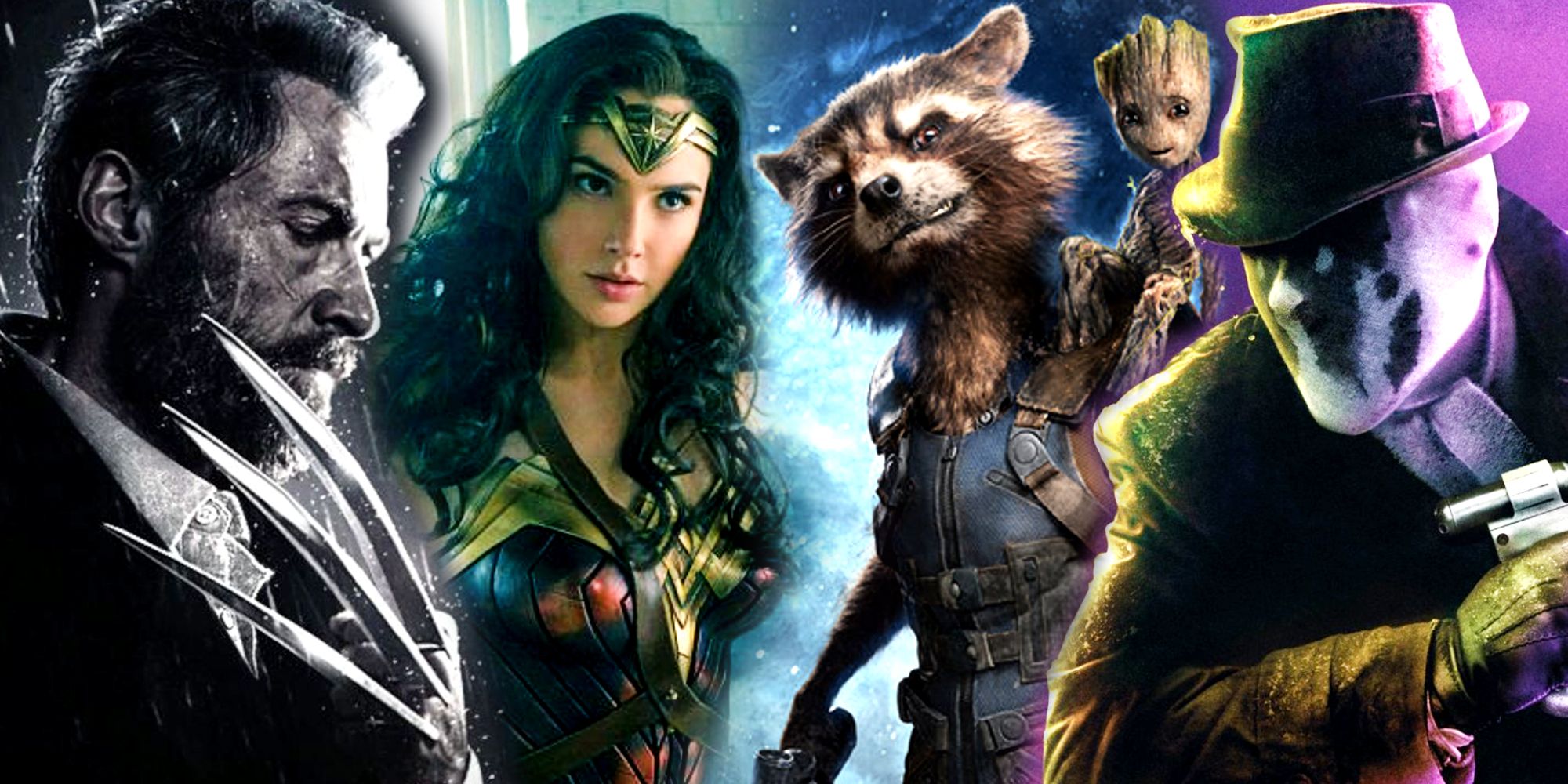
Perhaps more so than any other type of film, Superhero movies tend to draw inspiration from and set their stories in a wide variety of genres. The current prevalence of superhero movies and TV shows has created a new label. Just like musicals bloomed in the 1930s and westerns reached their peak in the 1960s, the 2010s have brought the advent of superhero stories on the big and the small screen. Nowadays, superheroes are synonymous with high-octane action and science fiction, but they often mix comedy, fantasy, romance, and even horror as well.
After Richard Donner's Superman and Tim Burton's original Batman proved how popular superhero movies could be, films like Blade and X-Men started exploring new tones and more unique stories. Acclaimed directors such as Guillermo del Toro (Hellboy), Sam Raimi (the Spider-Man trilogy), and Christopher Nolan (The Dark Knight trilogy) proceeded to make their respective live-action adaptations of iconic superheroes much more grounded than anything that had come before and relied more on the stylings of horror and thriller. With more hits than misses, the newfound superhero genre bloomed with the rise of the MCU, which became a playground for multiple creative minds to explore wildly different characters and stories.
Beyond Marvel and DC, superhero movies such as Pixar's family-centered The Incredibles, James Gunn's cult satirical hit Super, Josh Trank's found-footage Chronicle, and David Yarovesky's full-fledged horror Brightburn have taken their costumed/superpowered characters towards unique directions. While playing with tropes from different genres can result in muddled stories, superhero films can blend multiple genres at once and still be recognized as such. Here's why this happens and why it's so effective.
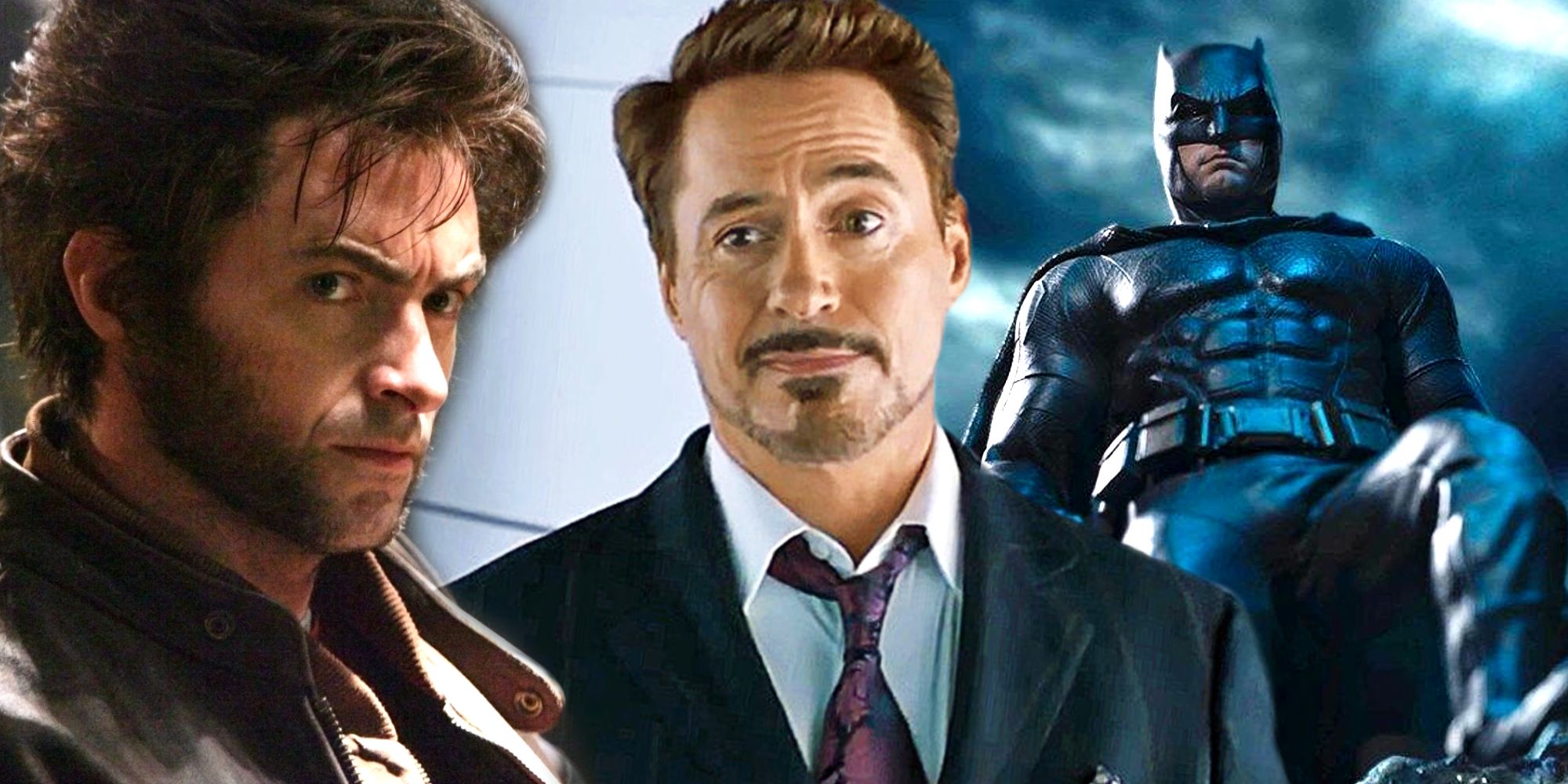
It's not a secret that the most important parts of superhero movies are the superheroes themselves. The success of a new adaptation usually depends on how well cast the main character is, hence why Hugh Jackman for Fox and Robert Downey Jr. in the MCU have come to define Wolverine and Iron Man as much as the comics themselves. As long as the characters are faithful to what viewers expect from them, the movies in which they appear can tackle any combination of genres with almost the same amount of risk. Fans saw Tony Stark go from fighting terrorists in 2008's Iron Man to fighting other superheroes in 2016's Captain America: Civil War and then fight a time-traveling Thanos in Avengers: Endgame, but since Tony Stark never stopped being the charismatic jerk audiences know and love, these drastic changes never broke their suspension of disbelief.
On the other hand, iconic characters like Batman and Superman have been portrayed by many different actors throughout the years, and even though they've gone through both the cheesiest and darkest portrayals, they're still recognized as the same icons. Regardless of what genre their next appearance will be in, each movie will still be a part of their legacy and not just another release in a specific genre. With previously little-known characters such as the Guardians of the Galaxy and the Suicide Squad, general audiences have grown attached to their personalities and personal journeys without having to understand exactly where they came from or whether they're accurate adaptations. Instead, viewers know that they'll use their superhuman capabilities to try (or fail) to save the day — therefore, the genre and setting of each movie become a secondary priority. No matter who the main heroes are, viewers tune in for their larger-than-life adventures first and foremost.
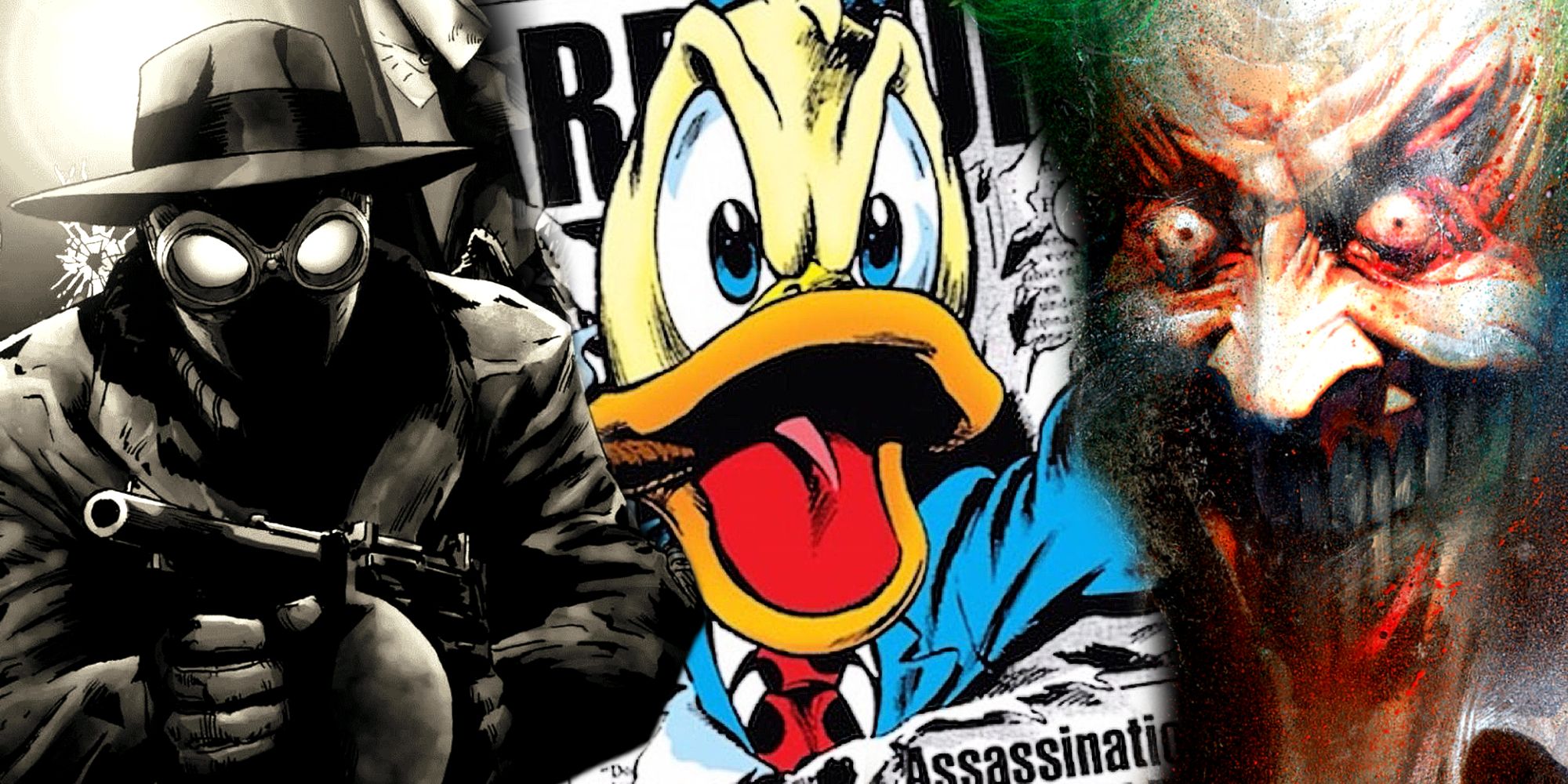
Comic books have played with different genres long before movies started adapting them. For instance, Batman went from being a no-holds-barred vigilante during his debut in 1939 to a lighthearted goofball during the Silver Age of the 50s and 60s and then a grizzled, tired, and brutal anti-hero in 1986's The Dark Knight Returns — all before Tim Burton's Batman introduced the Caped Crusader to the big screen. Most superhero movies based on comic books have plenty of varied stories to adapt, and when condensing several decades' worth of comic book history in a 2-hour movie, studios and directors tend to draw upon a wide variety of tones and genres in order to reach a complex final product. This is also why different actors can excel in their portrayals of the same character despite being completely different from one another, as they capture aspects of the character that previous actors hadn't yet explored.
In many cases, superheroes have blended different genres since the moment they were created. For instance, Doctor Strange has always incorporated horror, while the concept of a huge team of superheroes like the Justice League flourishes when it balances Batman's dark persona with Wonder Woman's myth-based lore and Plastic Man's absurd comedy. Of course, some heroes blend genres in such an odd way that they become difficult to translate onscreen. Such is the case with Howard the Duck's weird mix of cartoon comedy, satire, and superhero adventure that works perfectly in the comics but resulted in utter failure in his 1986 movie. Some superhero stories have even drawn inspiration from Hollywood, like in the case of Marvel's so-called Noir Universe, which is clearly influenced by the film noir genre of the 1940s and 1950s.
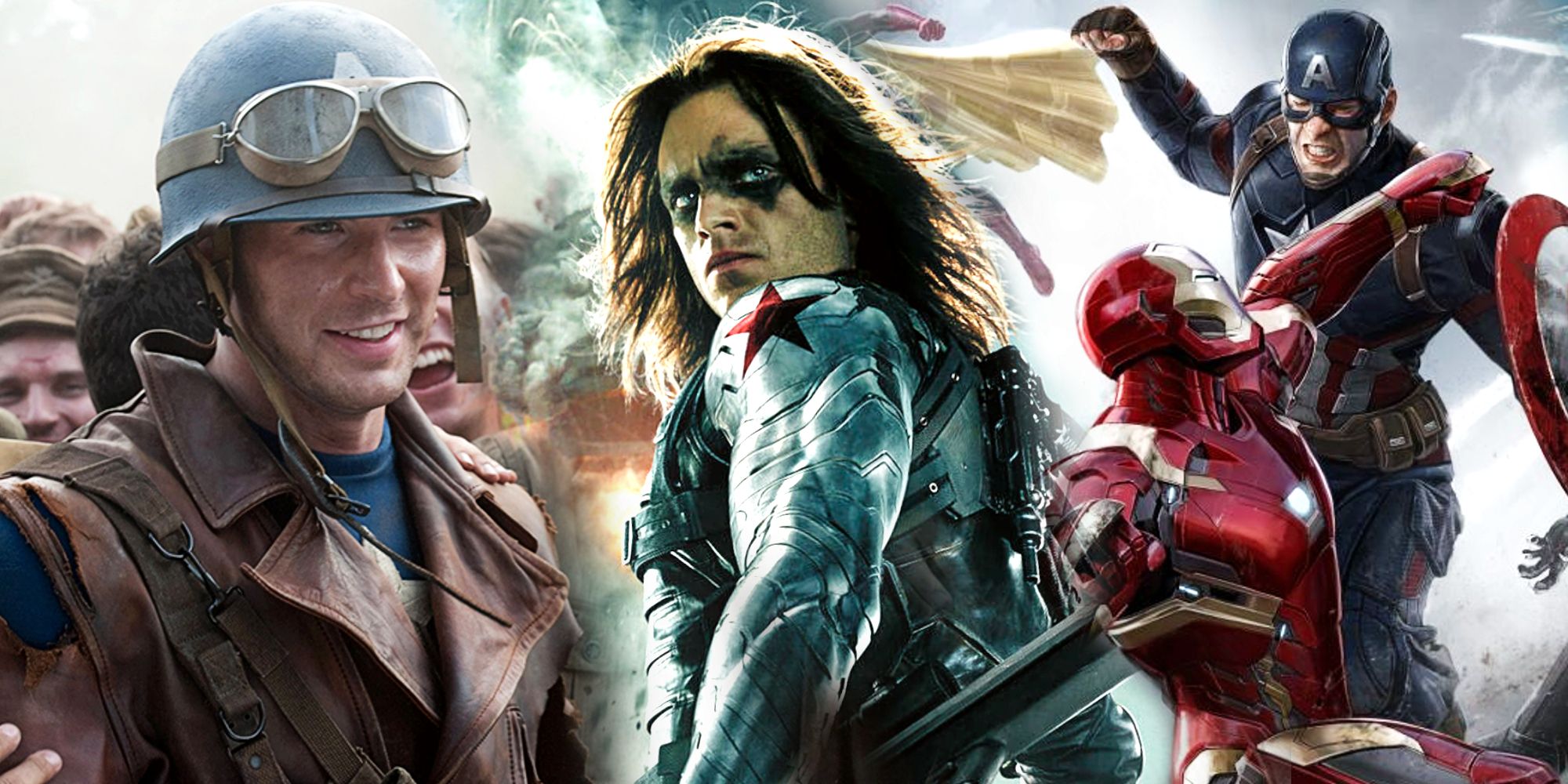
Now that superhero movies have broken the limits of the trilogy and have expanded themselves to entire shared universes, experimenting with different genres has helped them go through a more multifaceted evolution while still retaining their essence. Each movie can benefit from the appeal of one specific genre without having to stick to it in future installments. Shared universes guarantee that each movie takes place in the same continuity, regardless of how different it may look from the rest. Needless to say, the ongoing Marvel Cinematic Universe is the most evident example, as it can release trilogies that not only differ from each other but can also be comprised of wildly different installments.
Captain America's MCU trilogy perfectly illustrates this. The character's debut in Captain America: The First Avenger made perfect sense as a period piece set in the 1940s (complete with sepia cinematography and in-universe archive footage), only to evolve into a full-fledged political thriller in Captain America: The Winter Soldier and then a large-scale superhero event in Captain America: Civil War. Although the genres couldn't be more different, this variety helped Steve Rogers' trilogy evolve to fit better within the bigger picture. Introducing a character like Groot in The First Avenger would have destroyed all suspension of disbelief, but by the point Captain America meets the talking tree in Avengers: Infinity War, viewers have already witnessed Steve Rogers' progression as a man out of time and a soldier-turned-superhero.
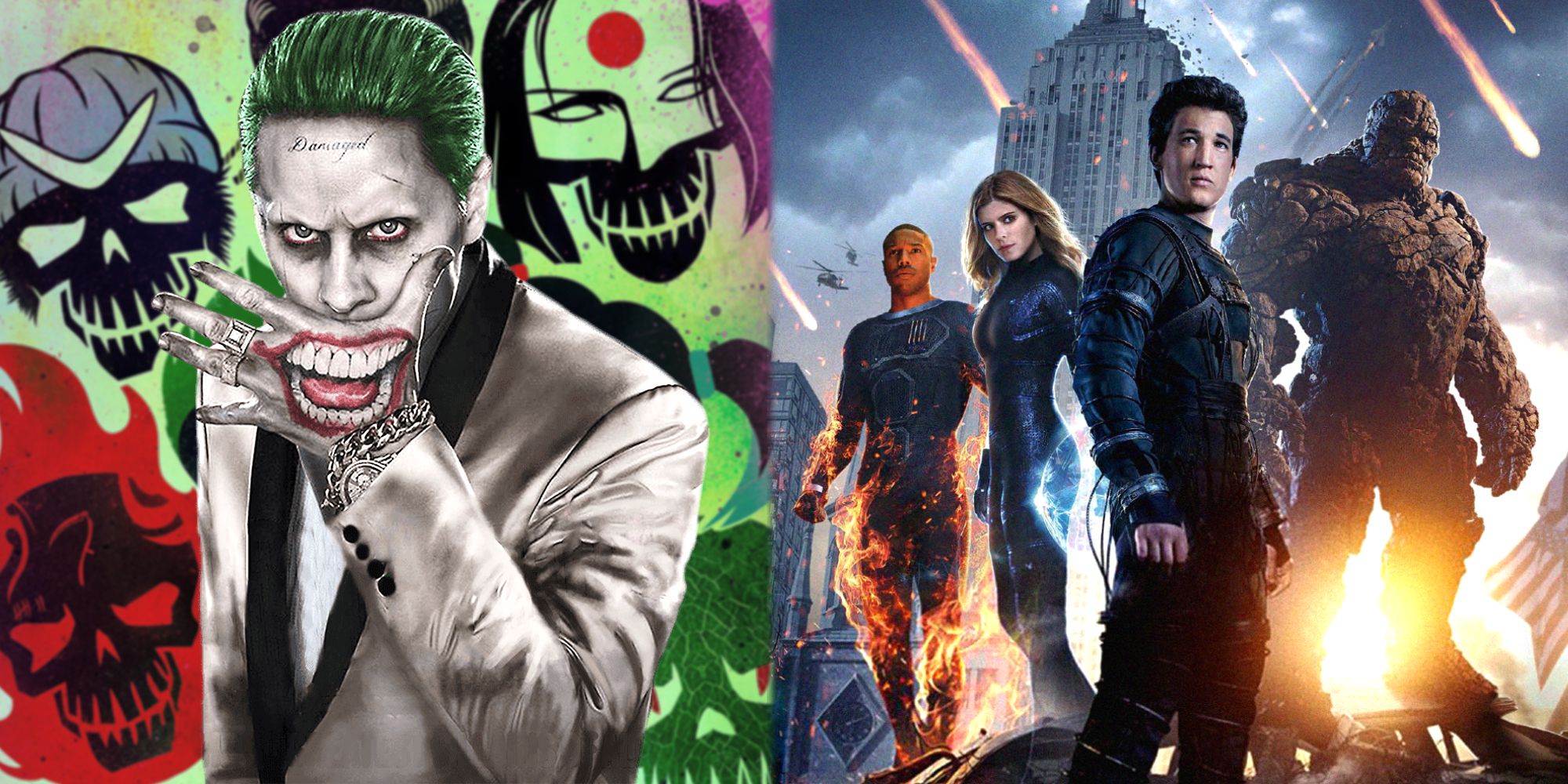
The biggest danger of blending genres in superhero movies comes when those genres fail to coexist. This often happens because of studio intervention, which contradicts the director's vision and results in a shapeless mix of clashing tones that fails to be funny, serious, dark, or lighthearted. Mixing different tones and genres just for the sake of it not only betrays the source material but also creates a movie that doesn't satisfy any target audience. The most infamous examples are Fant4stic, which turned the Fantastic Four, Marvel's most charismatic First Family, into the bleakest and dullest group of superheroes ever put on screen; 2016's Suicide Squad, which albeit entertaining, fails to keep its own promise to put its main characters in real danger; and the theatrical cut of Justice League, which painted Zack Snyder's ultra-dark vision of the DCEU with a coat of misplaced humor that removed all stakes from the story.
But even without studio intervention, choosing the wrong genres can hurt a movie with plenty of potential. Such was the case of both X-Men: The Last Stand and X-Men: Dark Phoenix, which failed to capture Jean Grey's terrifying transformation. Both movies could have captured the catastrophic consequences of her breakdown by drawing upon the best aspects of the horror and disaster genres. Another example is Batman v Superman: Dawn of Justice, which could have taken a grounded look at the world's finest superheroes, but hesitated to go the full way and couldn't become either a gritty thriller or an all-out ensemble film.
Superhero movies are more likely to blend genres smoothly, but they still have to follow the essential appeal of their characters and the expectations of the audience. Fortunately, new releases have proved that studios have become more skilled at it, with James Mangold's Logan masterfully capturing the essence of westerns, James Gunn's The Suicide Squad tackling comedy, war, and action, and recent MCU titles such as the hard sci-fi/mind-bending fantasy Loki and the sitcom/romance/action/horror WandaVision pushing the limits of what the all-encompassing superhero genre can do.
from ScreenRant - Feed https://ift.tt/3uDLHFu

0 Comments